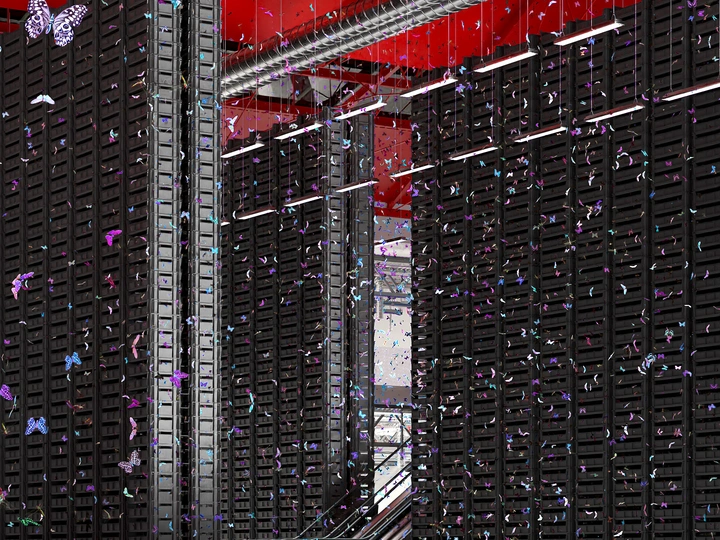ENTOFARM

Davide Masserini
Luigi Savio
(AB)NORMAL is an interdisciplinary architecture studio based in Milan. Run by architects Mattia Inselvini, Davide Masserini and Luigi Savio, the studio's work spans architecture, product design, and creative direction, across a wide array of domains including art, culture, design, interiors and fashion. These outputs traverse various scales and formats, moving between the virtual and tangible, ephemeral and permanent, speculative and commercial.
Driven by a keen interest in the frictions of contemporaneity, the creative process of (AB)NORMAL integrates iconic elements with nods to popular culture, with a particular focus on multidisciplinarity and the implications of technological progress. The result is a profound and widely understandable mosaic, architecturally grounded in the present yet conceptually responsive to change.
The studio has contributed to various cultural events related to design, architecture, art, fashion, and music. And has collaborated on special projects with renowned clients such as CP Company, Moncler, Versace, Pirelli, Ortigia Sound System, Vougue Italia, Bally, and Cassina. Our works have been published in magazines such as Domus and Abitare and has contributed with his works to various cultural events related to design and architecture, such as the Oslo Triennale (OAT2019), the Ljubljana Biennale (BIO26), The Swiss Architecture Museum (S AM), Triennale of Milan, Haus der Architektur in Graz (HDA).
Why do we propose insect breeding? There are three key reasons:
Firstly, insects belong to a biological class highly susceptible to human activities like intense land use and pesticide application.
Secondly, the European Union is gradually implementing policies favoring the integration of insects into our food chain.
Lastly, this endeavor proves highly profitable and aligns with current market trends and needs. In other words, it's not just a utopian or dystopian dream but a potentially economically sustainable project.